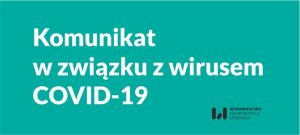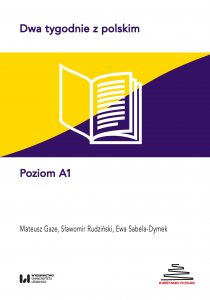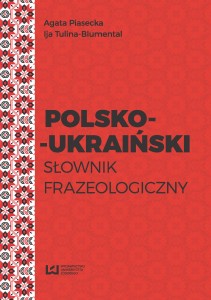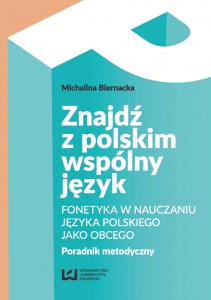Qualitative Sociology Review | Vol. 20 No. 2
Opublikowano: 7 maja 2024
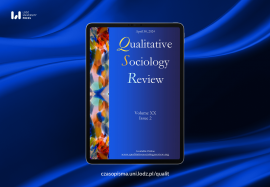
For a long time, we have observed an increased interest in qualitative sociology, and the use of an interpretive frame to understand human actions, social processes, meanings and definitions, and new social theory generally. For this purpose, we created Qualitative Sociology Review – an open-access international scientific journal enabling a free flow of information and the integration of the community of qualitative sociologists.
Qualitative Sociology Review publishes empirical, methodological, and theoretical articles applicable to all fields and specializations within sociology. Every submitted paper is blind-reviewed and quality-controlled by two reviewers. The Editorial Staff and Consulting Editors strive to operate at a high level of scientific quality.
All sociologists who make use of an interpretative paradigm and qualitative research methodology are welcome to submit their articles and support our initiative. We especially welcome researchers who use symbolic interactionism perspective but also grounded theory, sociological ethnography, autoethnography, phenomenology, ethnomethodology, and who use the methods of observation of actions and analysis of lived experiences.
INSIDE VOL. 20 NO. 2:
Subcultural Hierarchy and Policing amongst Incels in Online Forums
Christian A. I. Schlaerth, Aaron Puhrmann, Elaine Bossard, Rachel Setting
While investigations into incels online have increased, most have focused on their potential for violence, their misogyny, extremist ideologies, and their mental health. Very little has been devoted to examining the nuances of that subcultural group. The research in this paper examines the hierarchy that has been established within the incel subculture, online, and how that hierarchy is policed using various mechanisms such as reporting “fakecels” to the moderators to have them banned and insults. Findings show that there are clear hierarchical delineations of incels in general, with “blackpill” incels being the most extreme in their worldview and their use of science (albeit cherry-picked) to justify the incel ideology. The researchers also found that there is a hierarchy specific to the online forum from which data were gathered. The paper concludes that understanding incel subculture is salient in addressing the potential threats of violence and treating those individuals who no longer want to identify as incels. Future directions of research would be to examine why boys and men identify as incels.
Itai Hlonie Mafa, Tapiwanashe G. Simango, Robert Kudakwashe Chigangaidze, Elia Mudehwe
The sexual economy prevalent within universities, as well as how young people perceive, interpret, and experience their sexuality, present complex dynamics, which, if not handled with great emotional intelligence, may disrupt their educational aspirations. This paper investigates the psycho-social implications of “semester marriages” within institutions of higher learning. Guided by principles of the qualitative approach and the theory of planned action, the paper disinterred that students experienced intense regret and guilt as a result of backstreet abortions. Soul-tie complications emanating from sharing the “wife-husband” bond also made it difficult for some students to move on after a breakup, leading to disruptions in their educational focus. In extreme cases, such an inability to deal with the adverse effects of “semester marriages” culminated in crimes of passion. The paper desists from pathologizing the “semester marriages” phenomenon and advocates for the strengthening of psycho-social support modalities within university settings to increase the accessibility and visibility of therapeutic services through a school social work model. Furthermore, universities, in partnership with other relevant stakeholders, are urged to prioritize sexual and reproductive education and services among the youth as provided for in the Constitution of Zimbabwe of 2013 to impart life skills that can equip students to make informed sexual and reproductive decisions.
Laura Obernesser, Elizabeth Seale
This study examines how people who have been constrained by extreme or chronic poverty, rural location, and adversity in interpersonal relationships make decisions and engage in agency through their narratives and everyday experiences. As a social scientific concept, the agency indicates the intentional behavior of individuals in the context of their environments, relations, and situations. In-depth, semi-structured interviews were collected with sixteen participants in rural south-central New York state who were living in extreme and/or chronic poverty. While exercising agency is viewed as important to the upward mobility of families and individuals in poverty, our participants encountered not only complex contexts for doing so but, at times, engaged in rebellious or counterproductive forms of agency. Furthermore, family ideology, such as traditional family values, shaped the perceived possibilities for forming one’s life course. We find the structure-agency dichotomy less useful than a framework that incorporates additional sources of constraints on agency, such as embodiment and culture. We also encounter difficulty in applying the concept of agency to the experiences of our research participants in ways that point to the necessary reworking of the concept.
Adam Mrozowicki, Jacek Burski
This article aims to answer the question of the biographical meaning of the pandemic in the experiences of so-called “essential workers” who performed their duties in the first line of struggle with the consequences of the COVID-19 health crisis. The analysis of workers’ experiences helps us contribute to the ongoing debates on the role of macro-level events in autobiographical storytelling and the discussion on biographical turning points in sociology. The empirical analysis is based on a collection of more than 80 biographical narrative interviews in healthcare, social care, education, and logistics, from which we selected two stories of the pivotal significance of the pandemic crisis for biographical change for analysis. Biographical analysis makes it possible to describe which conditions are conducive to the inclusion of the pandemic in the main biographical story as a turning point.
How Reflection Works in Transformative Dialogue/Mediation: A Preliminary Investigation
Angela Cora Garcia, Erik Cleven
Transformative dialogue and mediation (TD/M) is an approach to conflict resolution used in mediation and inter-group dialogues about social justice and race, political polarization, and ethnopolitical conflict. TD/M practitioners believe their approach supports the agency of participants and helps them interact with greater confidence, self-awareness, and understanding of the perspectives of others. However, previous research on TD/M has not yet addressed how it achieves those outcomes. This pilot study works to fill that gap by investigating how reflection, the most commonly used TD/M technique, is utilized in a facilitated meeting of the steering committee of a non-profit organization. We conduct a qualitative sequential analysis of a video-recorded interaction to investigate how TD/M reflection is done. We show how the TD/M facilitator of the meeting reflects participants’ statements with the techniques of mirroring, substituting, and omitting and how the participants respond to those reflections with agreement or repair. The results of the analysis are discussed in terms of their implications for understanding how TD/M facilitation works.
Komentarze
Ten post dostępny jest także w języku: angielski


